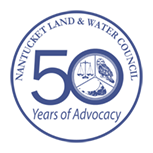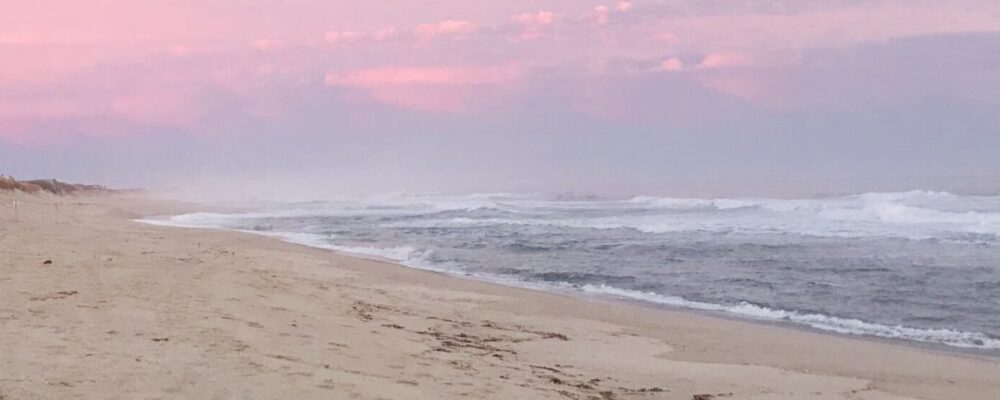Dear Nantucket Voters,
The Nantucket Land and Water Council (NLWC) believes that Nantucket residents deserve a healthy environment and sustainable infrastructure as well as the opportunity to continue to augment their income via the tradition of short-term rentals and that we, as a community, should not have to give up any one of these to ensure another. Further, we contend that a healthy environment and infrastructure are vital to the quality of life and experience of being on the island, and therefore are critical to the short and long-term economic vitality of our community. After thorough review of both proposed STR articles, in consultation with our legal advisors who specialize in real estate, zoning and municipal law, it is clear that the STR by-laws being proposed for passage at the upcoming Special Town Meeting -with their existing loopholes, lack of clarity and enforceability, and their potential to further incentivize conversion of existing homes to STRs – do not adequately balance traditional use of STRs with protection of our natural resources and infrastructure. If passed, these articles would actually deeply undermine our long-term vitality, rather than protecting it.
The Nantucket Land & Water Council (NLWC) has thoroughly reviewed the Short-Term Rental (STR) Articles on the agenda at our upcoming Special Town Meeting and determined that: they will not adequately balance traditional use of STRs with protection of our natural resources and infrastructure; they contain loopholes and unresolved issues preventing them from achieving their purpose and intent; and there is no clear means to comprehensively implement and enforce them. As a result, we recommend voting NO on Articles 1 & 2.
The Nantucket Land & Water Council (NLWC) has released its full recommendations for the Nantucket Special Town Meeting scheduled for Tuesday, November 7th at 5:00pm in the Nantucket High School Auditorium. The NLWC recommendations can be found HERE. They include recommendations for a NO vote on both Short-Term Rental (STR) articles – Article 1: Bylaw Amendment – Regulating the Operation of Short-Term Rentals, and Article 2: Zoning Bylaw Amendment – Regulating Short-Term Rental Use.
The NLWC supports comprehensive and enforceable restrictions on Short-Term Rentals (STRs), and particularly corporate STRs, that balance Nantucket’s local STR traditions with protection of our Island’s natural resources and infrastructure. We recognize the time and effort of the STR work group to develop the proposed STR restrictions. However, after a thorough review of the proposed STR bylaws, we do not believe that they will achieve that balance or even their intended purpose and intent. For that reason, NLWC recommends that they not be supported at this time.
A few examples:
- Despite claims to the contrary, multiple workarounds exist that undermine the purpose and intent of the proposed by-laws, including for new corporate STR ownership. Corporate STR owners could increase the number of STRs they operate so long as they are represented by “natural persons”, or could create separate entities for each STR.
- Terms in the proposed by-laws, such as “owner” have not been defined, leaving room for interpretations inconsistent with the purpose and intent of the proposed regulations.
- The Town of Nantucket’s Health Director has clearly stated that key elements of the proposed by-laws are not enforceable, including a cap on the number of contracts allowed for a given STR per season.
- These proposed by-laws will not reduce incentives for further conversion of existing homes to corporate STRs; in fact, they could have the opposite effect.
The proposed motion for Article 1 as presented by the Finance Committee would effectively grant vested rights to short-term rent for every lawfully preexisting property on the Island, regardless of whether it had ever been operated as an STR before. This change compounds our concerns about Article 1 because the proposed by-laws would apply only to new units that don’t yet have a Certificate of Occupancy. That change would encourage additional corporate and commercial STR use across the Island rather than regulate and restrict it, with negative impacts to our Island’s natural resources and infrastructure as a result.
For all these reasons, We recommend voting NO on Article 1.
Article 2 is incredibly concerning, and we recommend strong opposition. Article 2 would effectively legalize unlimited STRs across the island as an allowable primary use by right under zoning laws without any limits, restrictions, or regulations whatsoever. Zoning protects the character of our island, and memorializing Short-Term Rentals as a use by right in all residential districts will increasingly stress our fragile environment, infrastructure, and our neighborhoods. This article will result in commercializing our residential districts, and once this right is granted under zoning it cannot be undone. As proposed in the final warrant, Articles 1 and 2 are to be voted on as a package. Whether they move forward as a package, or are allowed to move forward independent of one another, it is critical that Article 2 does not pass. We strongly urge voters to vote NO on Article 2.
As a community, we need to tackle the impending challenges that we face from uncontrolled growth of the STR industry. The Short-Term Rental Work Group has generated valuable understanding of this nuanced issue and provided practical elements in their proposal. Too many unresolved issues and loopholes remain to be sorted out before the Town has a comprehensive means to implement and enforce common-sense STR regulations.
So, what is the path forward? We support further exploration of allowing STRs as an accessory use under zoning, allowing residents to short-term rent their properties while ensuring that they are primarily used as a home. In continuing to also consider appropriate regulations, we must successfully restrict corporate or investor-owned commercial STRs, ensure that we have the ability to comprehensively implement and enforce our regulations, and meaningfully disincentivize new STRs so we stop building or renovating homes designed primarily for short-term renting. We need to incorporate measures that achieve clear goals to prevent the conversion of existing homes to commercial rentals if we are going to sustain a healthy community. Most important, we must balance ongoing traditional use of rentals with the long-term protection and sustainable use of our Island’s natural resources and infrastructure.

